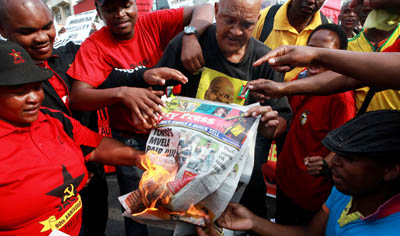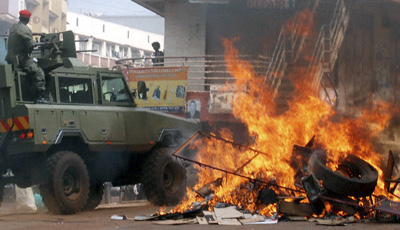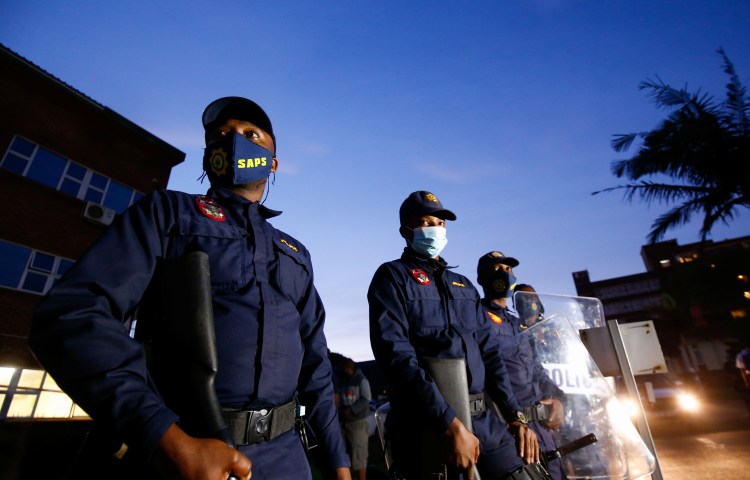
News crews harassed, reporter arrested during South Africa’s municipal elections
On October 21, 2021, in the lead up to South Africa’s municipal elections on November 1, supporters of the ruling African National Congress (ANC) held a news team from the South African Broadcasting Corporation (SABC) against their will for two hours demanding coverage from the public broadcaster. On election day, SABC reported another crew was…
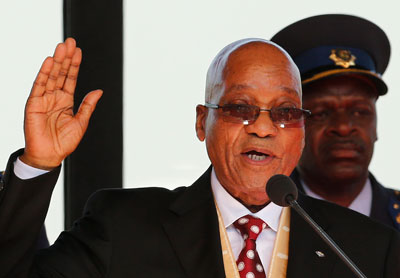
South Africa’s new communications ministry causes concern
Freedom of expression advocates in South Africa are concerned that the new Ministry of Communications, announced by President Jacob Zuma when he unveiled his cabinet on May 25, will compromise the independence of the public broadcaster and serve as a propaganda office.
Pressure on Journalists Rises Along With Africa’s Prospects
After a decade of unprecedented growth and development, the insistence on positive news remains a significant threat to press freedom in sub-Saharan Africa. By Mohamed Keita A newspaper displayed in the Ikoyi district of Lagos on September 30, 2013, tells of a deadly attack on a college in northeast Nigeria by suspected Boko Haram militants.…
Mandela’s Legacy of Media Freedom Stands Its Ground
How robust are the institutional safeguards that underpin Nelson Mandela’s vision of a strong and independent South African media? By Sue Valentine Nelson Mandela, pictured in May 2011, sometimes accused critical black journalists of disloyalty during his presidency. (AFP/Elmond Jiyane)
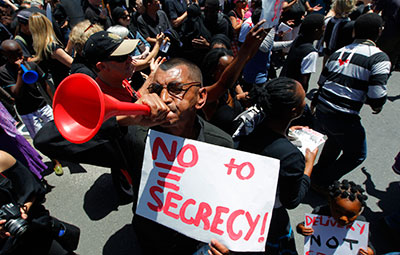
South African Secrecy Bill kept at bay, for now
South African journalists and civil society groups were uneasy this month amid rumors that the Protection of State Information Bill, commonly known as the Secrecy Bill, would pass the Upper House of parliament, the last step before a presidential signature. Since 2008, journalists and civil society have lobbied against the bill, which many fear would…
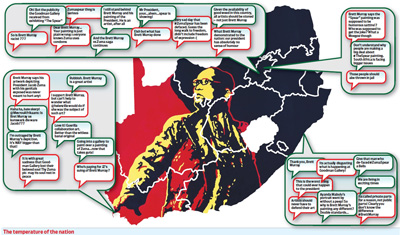
South Africans clash on Twitter over #Zumaspear
South African journalist and arts critic Charl Blignaut made what turned out to be an excellent prediction. “Of all the work on show, it’s this depiction of the president that will set the most tongues wagging and most likely generate some howls of disapproval,” he wrote on May 13 in a review of an art…
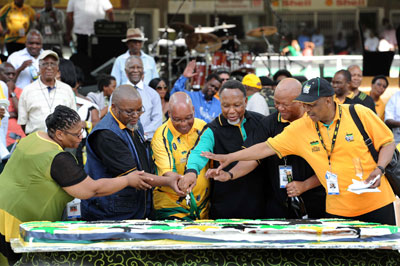
#ANC100 debate lays bare divisions over South Africa media
On January 8, 1912, South African intellectuals–including pioneering black newspaper publishers Pixley ka Isaka Seme, editor of Abantu-Batho, and John Langalibalele Dube, editor of Ilanga lase Natal–formed Africa’s oldest liberation movement, the African National Congress (ANC), in the Wesleyan Church in Bloemfontein.
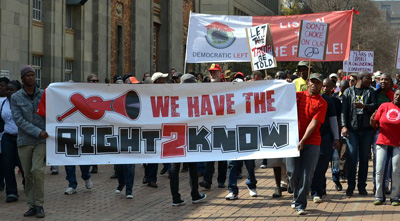
Mission Journal: Secrets bill spurs South African press
Irrespective of whether South Africa actually implements the most draconian parts of state secrets legislation now under consideration, the media in the continent’s most open democracy already feel under threat. The prospect of 25-year jail sentences for journalists publishing “classified” information has galvanized disparate news outlets and journalists groups to work together like never before.
